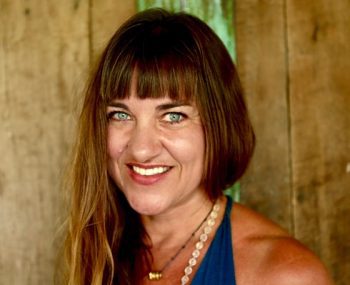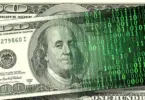Guest writer for Wake Up World
You were abused as a child.
Your husband left you for another woman.
You were fired for no good reason when you’ve got three kids at home depending on you.
You got diagnosed with a scary illness.
You lost someone you love when that person was WAY too young.
The patriarchy violated you.
The person you love doesn’t love you back.
You were physically hurt by another person.
Because so many have been harmed at the hands of patriarchal oppressors, sex offenders, abusive family members, and abusive leaders within broken establishments, it’s easy to feel victimized by life when things don’t go our way. When bad things happen to good people with pure intentions, it’s tempting to get angry at our circumstances, angry at God, angry at the world.
But to embrace such helpless, hopeless, pessimistic views is to dismiss the notion that, as Margaret Mead said, “… a small group of thoughtful, committed citizens can change the world; indeed, it’s the only thing that ever has.”
[pro_ad_display_adzone id=”110028″]
The Temptation to Feel Victimized
It’s so easy to fall into victim mode. I know. I speak from personal experience. A few years ago I wrote a new book, a spiritual self-help book dressed up as a memoir, called The Anatomy of a Calling. Because it includes my personal story, I went back to the unpublished memoir I had written six years earlier, right after leaving clinical medicine. I thought maybe I could copy and paste some of what I had written into my new book. But I was aghast to discover that I couldn’t use a single word of what I had written. The entire story had been written through the lens of someone who felt victimized — by the many losses I suffered during my “Perfect Storm,” by my abusive failed marriage, by the way our broken health care system hurt me.
Throughout those earlier writings, the way I had written my story was disempowering and helpless. I failed to take responsibility for my part in the dysfunction. And when I wrote it, I was still blind to the ways in which I was giving away my power to those who hurt me, rather than resolutely reclaiming my power.
I wound up ditching the whole thing and starting from scratch. Even still, I found myself still falling into old patterns as I tried to tell the story of what happened to me. It’s only natural to feel victimized when something bad happens, especially when you feel powerless in the face of the tragedy. But this time, I tried to view my story as though my soul intentionally chose every single painful thing that happened to me as a way to teach me lessons I’m here on this earth to learn, as a way to make me a better person, capable of transcending the bad things that have happened in the past.
The Third Story
In Barnet Bain’s The Third Story, he describes three ways to respond to what happens to us. In the first story, we live through the woundings and tragedies that leave us in tatters, falling into the “poor me” victim story. The second story is the hero’s journey, wherein we seek to put ourselves together again after we’ve been wounded, valiantly overcoming our challenges and obstacles.
Many stop at the hero’s journey. The hero gets the call to adventure. The hero goes on a journey. The hero finds the holy grail. The hero brings the grail back home and enjoys a hero’s welcome. End of story, right?
Or maybe not. Some are willing to transcend the victim story, move beyond the hero’s journey, and step fully into the third story. The third story is a response to a call from deep within the self. It is an extraordinary state that inspires us to live our own dreams and to intimately know our real purpose and meaning. It’s the post-heroic story, full of paradox and uncertainty and no guarantee of happy endings. But it is real and rich and full of meaning and accountability and the desire to be of service, without attachment to agenda or ego or pleasing others.
Role Models for Releasing Victimhood
Getting out from under the victim story is not for the faint of heart. When monstrous things happen, especially when they happen to the young and helpless, it’s hard not to fall into the victim story. How does one transcend childhood sexual abuse or being orphaned by genocide or succumbing to debilitating congenital diseases?
16 year old a Pakistani activist Malala Yousafzai could have easily fallen into a victim story after she was shot in the head for speaking out about a girl’s right to be educated. But this Nobel Peace Prize nominee took a third story approach. When asked whether she would be inclined to respond to violence with violence, Malala said,“If you hit a Talib, then there would be no difference between you and the Talib… You must not treat others with cruelty… You must fight others through peace and through dialogue and through education.”
Certainly if anyone has the right to feel victimized, it’s Malala. Yet, she has used her story as a model for how to live more peacefully in a world of terrorists.
Beyond Victimhood
If something tragic has befallen you or those you love, my heart goes out to you. Consider yourself wrapped in the world’s biggest virtual hug.
(((((((((((((((((((((((((((((((((YOU)))))))))))))))))))))))))))))))))))))
Moving beyond victimhood doesn’t mean you don’t deserve empathy and compassion in the wake of your tragedy. It doesn’t mean you don’t deserve to move through all the emotions that accompany your tragedy. You must feel the grief, the anger, the resentment, the sorrow, the horror.
But if you stay stuck there, you miss the chance to transmute the tragedy into the gold of meaning and purpose in your life. During our Find Your Calling teleclass with Martha Beck, Martha said two things that stuck with me.
There is a benevolent purpose to any suffering in your life.
Everything that messes up your life is a failure of courage.
These are tough love sorts of statements shared with great compassion. They’re not meant to minimize the suffering you might feel if tragedy has befallen you. But they are meant to wake you up, to encourage you to take your life by the bootstraps, cultivate meaning from even the most tragic outcomes, and allow the tragedy to grow you into someone who not only transcends the tragedy, but uses it to alchemize pain into service, using what you’ve learned from your growth as a way to help others who are in pain.
When you embark upon your own second story hero’s journey, you will find your own holy grail, which you can then share with others. But you can take it one step further into the mystery of the third story. In the third story, you can be the one in pain. You can be the hero. You can be honest about how hard it is to wake up every day and lace your shoes in the wake of your tragedy, but you can also, when you’re ready, ferret out the benevolent intention beneath your suffering and maybe even feel grateful to the Divine for offering you an opportunity to grow deeper in your faith, your spiritual growth, and your self-awareness.
Therein lies the real gold that underlies suffering.
Have You Felt Victimized?
Do you find yourself defining yourself by your pain stories? Do you engage in what Martha Beck calls “story fondling,” hashing and rehashing your stories of suffering? Are you able to move into your second or even third story? Instead of seeing yourself as the victim, can you see the triumph in your story? Give yourself a giant hug and whisper in your own ear words of encouragement, pride, and gratitude. You did it, darling. I know it was hard, but look how far you’ve come.
Share your stories in the comments.
Recommended articles by Lissa Rankin:
- The Unmistakable Link Between Unhealed Trauma and Physical Illness
- Satisfying Our Emotional Needs Without Being Codependent
- Relationships on the Spiritual Path
- How to Make Your Body Ripe for Miracles
- Are You “Spiritual But Not Religious?”
- 10 Fun Ways to Reduce Your Cortisol Levels
- 6 Stories To Make You Believe In The Power Of The Mind To Heal You
- 7 Tips For Finding Your Tribe
- Holding Space When Someone Is In Pain
- 10 Surprising Things That Trigger “Fight-Or-Flight”
About the authors:
Lissa Rankin, MD is a mind-body medicine physician on a grass roots mission to heal healthcare, while empowering you to heal yourself. She is the founder of the Whole Health Medicine Institute training program for physicians and healthcare providers, and the New York Times bestselling author of the books Mind Over Medicine: Scientific Proof That You Can Heal Yourself (2013), The Fear Cure (2014), and The Anatomy of a Calling (2015).
Lissa blogs at LissaRankin.com and created the online community HealHealthCareNow.com. She is also the author of several other books, a speaker, a professional artist, an amateur ski bum, and an avid hiker. She lives in the San Francisco Bay area.
Connect with Lissa on Facebook and Twitter, or visit LissaRankin.com.
[pro_ad_display_adzone id=”110027″]









